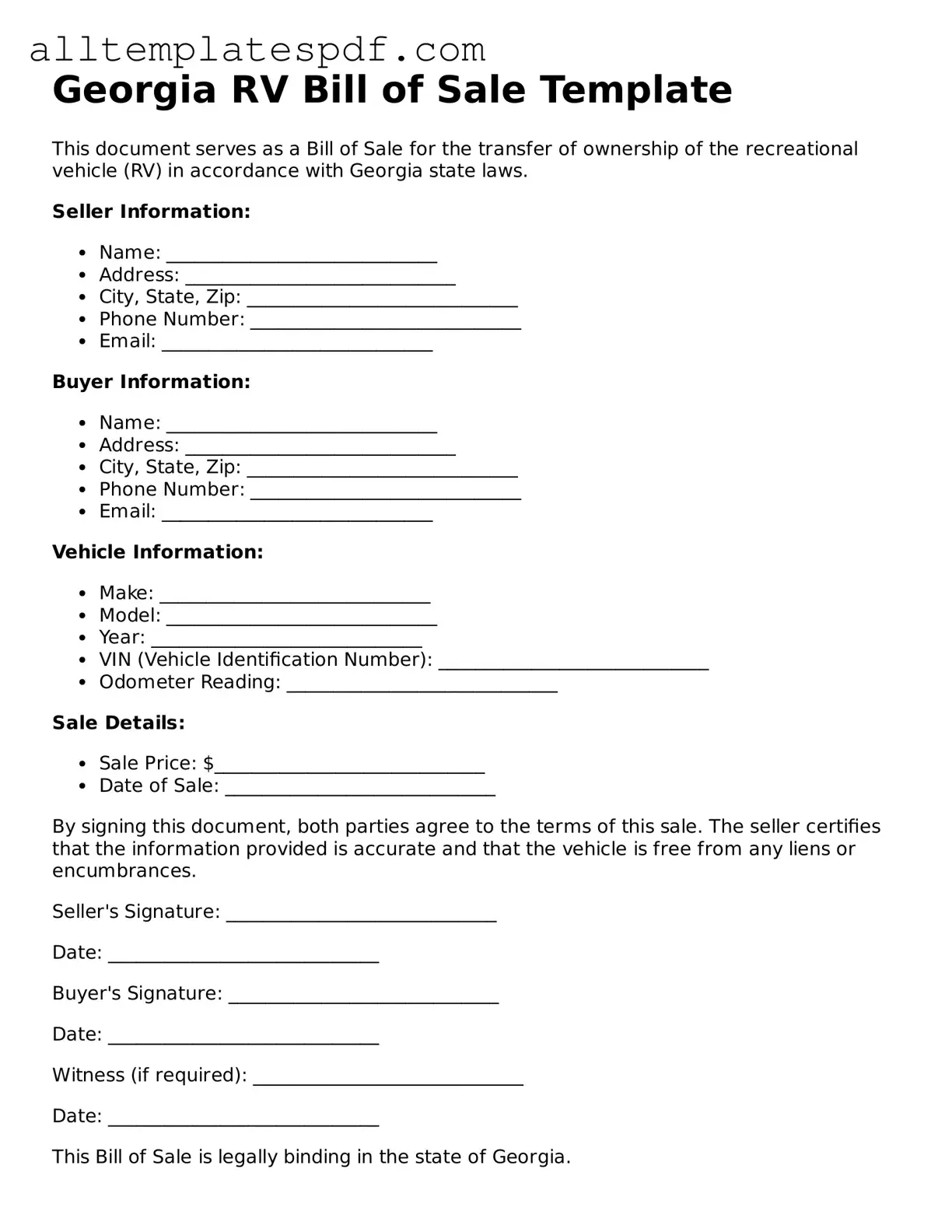Blank RV Bill of Sale Template for the State of Georgia
The Georgia RV Bill of Sale form is a crucial document used to officially record the sale of a recreational vehicle in the state of Georgia. This form provides essential details about the transaction, including the buyer's and seller's information, vehicle specifics, and the sale price. Ensuring this document is properly filled out and signed is vital for both parties involved in the sale.
Ready to complete your transaction? Fill out the form by clicking the button below.
Open Editor

Blank RV Bill of Sale Template for the State of Georgia
Open Editor
Fast and easy form completion
Complete RV Bill of Sale digitally — fast and easy.
Open Editor
or
↓ RV Bill of Sale PDF Form
